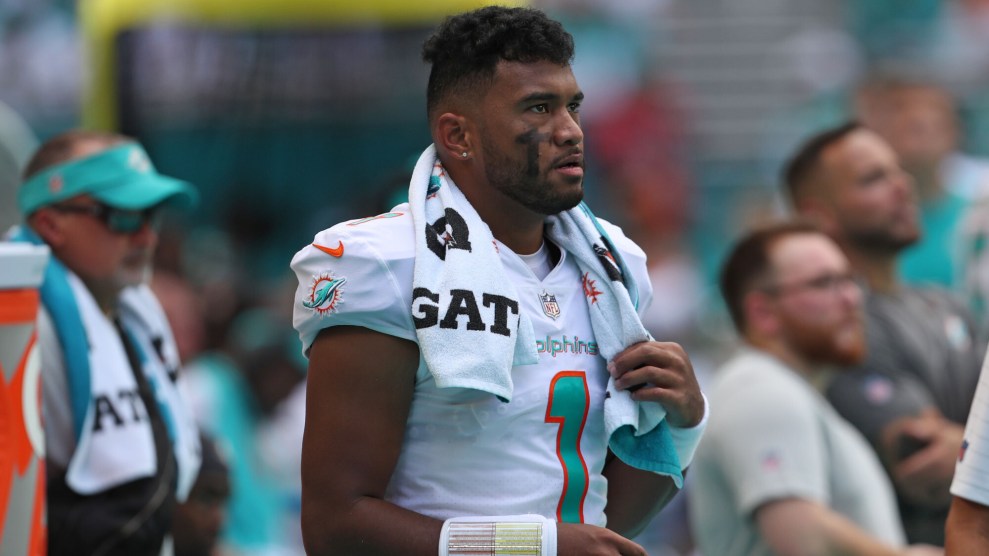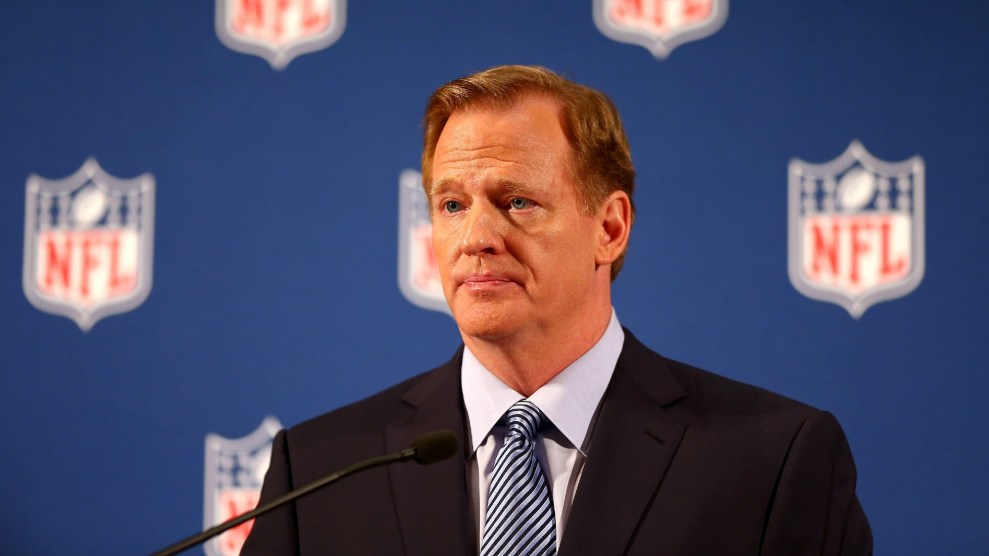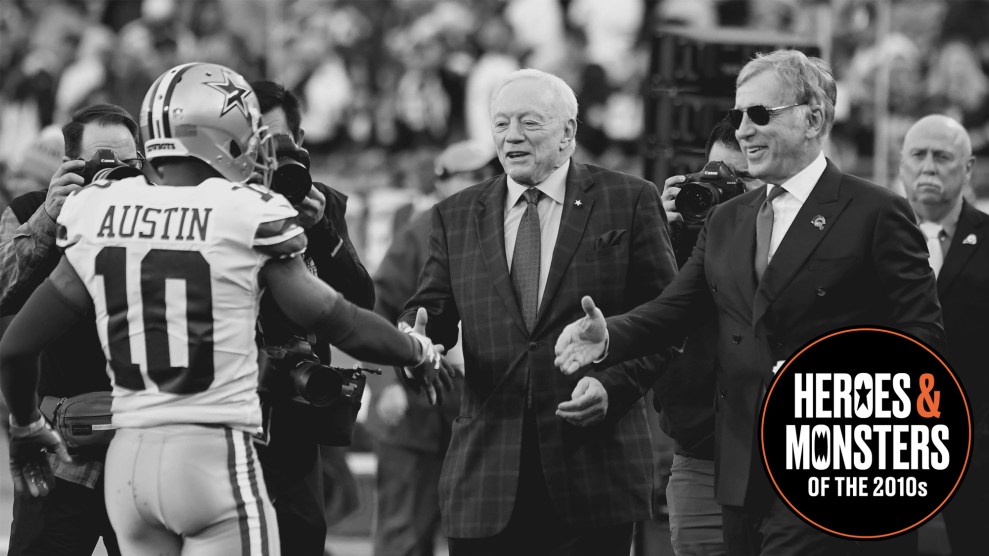
John McCall/South Florida Sun-Sentinel/ZUMA
Last Sunday, Dolphins quarterback Tua Tagovailoa was forced to exit the game in the second quarter of Miami’s game with the Buffalo Bills after what looked to anyone watching like a serious blow to the head. Tagovailoa appeared to slam his helmet on the turf after being knocked down by a defensive player, got up, and then wobbled and fell again to his knees.
But Tagovailoa did not stay out of the game for very long. According to the Dolphins head coach Mike McDaniel, he was evaluated by “several layers of medical professionals” for any sign of a head injury, cleared to go, and eventually finished the game.
And then, on Thursday night, this happened:
Prayers for Tua. He was just carted off the field 🙏 pic.twitter.com/HPv03iqWMU
— allfootball (@allfootball_IG) September 30, 2022
That’s a 24-year-old man losing control of his arms and hands on national television in what is known as a “fencing”—a gruesome symptom of severe concussions that football fans have come to learn about in recent years as the extent of the NFL’s concussion problem, long covered-up by the league, has come into the light. Tagovailoa did not return to the game after that. He was taken to a hospital and evaluated for head and neck injuries and then, according to Dolphins beat reporter Marcel Louis-Jacques, Tagovailoa sat next to McDaniel on the flight back to Florida and laughed at the movie MacGruber with his coach.
But there’s not a lot of laughter about the situation in the football universe. In response to the MacGruber revelation, former NFL player Will Blackmon shared that he’d been ordered to stay off his phone after his own concussion. Avoiding screens is common advice; so is avoiding airplanes.
Another retired NFLer, Rob Ninkovich, said on ESPN that the league and the team “should be sick to their stomach” about how Tagovailoa’s injuries were handled.
“They’re supposed to be there to protect the player from the player hurting themselves,” he said. Whether Tagovailoa thought he was fine to return to the game on Sunday, or start the game on Thursday, should have been irrelevant.
“I couldn’t believe what I saw last night—I couldn’t believe what I saw last Sunday,” Baltimore Ravens head coach John Harbaugh told reporters on Friday.
Rep. Bill Pascrell (D-NJ), the founder of the Congressional Brain Injury Task Force, wrote to NFL commissioner Roger Goodell and Dolphins owner Stephen Ross demanding a fuller accounting of how Tagovailoa’s injuries were handled. The NFL Players Association had already demanded an investigation of the Dolphins before Thursday’s game even started.
On Saturday, ESPN reported that an “unaffiliated neuro-trauma consultant” who had signed off on Tagovailoa returning to the field had been fired at the request of the NFLPA, after an investigation concluded he’d made “several mistakes.”
McDaniel, for his part, has insisted that the team did everything by the book and he and his staff would never knowingly do anything to jeopardize a player’s health. The consultant aside, it’s worth considering the implication of those words, and what it means for the entire process the NFL has constructed. As Mina Kimes put it on Sports Center, “It’s entirely possible that the Dolphins didn’t break the rules, but the rules themselves are broken.”
“I’m just really, really, really glad that I can hear normal Tua in his voice,” McDaniel said on Friday.
The Dolphins head coach is only human, and I don’t doubt he wants the young man he works closely with to be okay. But it’s that desire for everything to always be okay, to move on rather than pause and reassess—and the financial and professional urgency and pressure to manifest that in a 17-game crucible—that got the NFL to where it is today.












